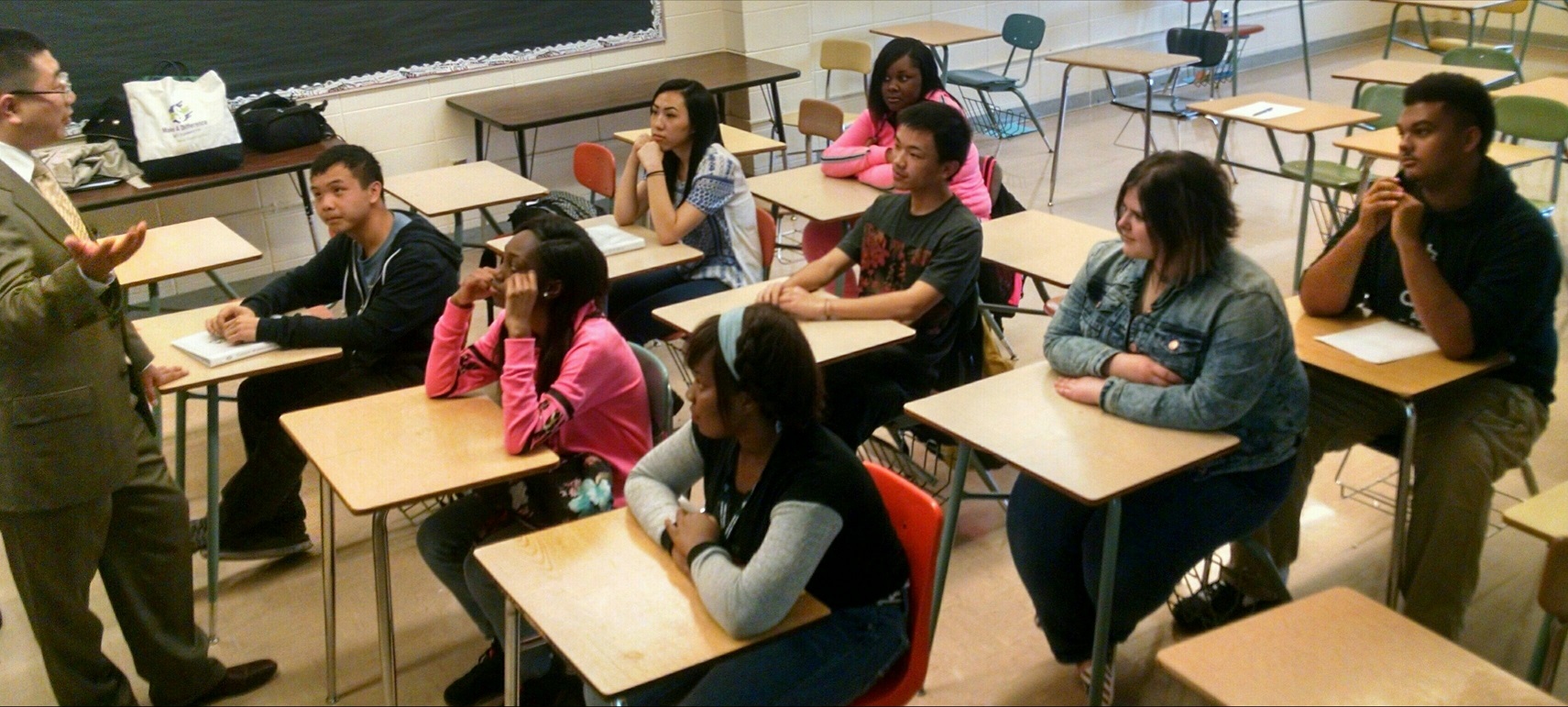Financial literacy is a living breathing thing, especially to the teenagers at two fantastic Wisconsin high schools, James Madison and Shorewood.
 Last week, I was a fly on the wall at these schools for lessons led by our organization’s volunteers. Where any type of coursework could seem dry on paper – including financial education – there was a lively confluence of interactions, inquisitiveness and excitability from students, volunteers and educators in Make A Difference programs at these schools.
Last week, I was a fly on the wall at these schools for lessons led by our organization’s volunteers. Where any type of coursework could seem dry on paper – including financial education – there was a lively confluence of interactions, inquisitiveness and excitability from students, volunteers and educators in Make A Difference programs at these schools.
First off, during Jessica Braun’s economics class at Shorewood High School, 21 students worked through the basics of pre-paid cards, debit cards and checking. Then, they took volunteer John Beckwith on a detour with eager questions on buying a home compared with renting. John was happy to following their questions. These students have grown up in the shadows of the Great Recession, with ideas on home ownership and loans markedly different from prior generations. John gave students the example of his own two young adult sons, one who bought a house right after college and one who echoed some of the cautious students in the room about being “tied down” to a city and mortgage. Setting yourself up for financial freedom makes those choices much easier, John summarized.
“Timing is important in life, along with hard work, skill and luck. You can’t predict everything,” said John, a five-year volunteer veteran.
This was one of four of our Money Sense program lessons conducted for different classes at Shorewood that day, all with different volunteers. Shorewood has been an involved education partner on financial literacy, harnessing Make A Difference lessons to supplement their own economics and personal finance curriculum. (It’s a special point of pride to be there, too, as Shorewood is the alma mater of our founder Lloyd Levin, who has even led classes there.)
Meanwhile, that same week at James Madison High School, about one dozen juniors and seniors were deep into hands-on lessons through our other program, Money Coach. But before they got into the goal setting and savings accomplishments from this exclusive program, the students humored us by letting us nab a few marketing pictures while the ever-excitable volunteer (and Waukesha Primerica exec) Rick Fong stirred students with a social connection to money.
“How is a FICO score like Facebook?” Rick asked.
The students gave a range of answers: it “lives” for others to see; it can paint an unflattering portrait to you; it can be the one way people judge you, without seeing more details. Facebook may or may not be passe with the teenage set, though the students easily understood that something like a credit score would be no passing fad.
Into their actual lesson, students shared “firsts” with a distinct tie-in to financial literacy. Mercedes and Jericho had nabbed their first jobs. Kamsia said he became an uncle during the week and noted that his family members now have to save for the newborn. Sean debated with himself aloud how something you want isn’t necessarily something you need. (“If I really want it, it starts to feel like I need it sometimes, you know what I mean?”) Savannah tallied the number of scholarships she’s applied to for her program and life goal of continuing her education at Waukesha’s Carroll University.
“Take that number of scholarships and double it. Then do more. You’ll be happy you did,” said Jordan Jung, one of the Money Coach volunteers, along with Catherine Carter, from the University of Wisconsin-Milwaukee.
At James Madison and Shorewood, these were snapshots of classes, which doubled as reflections on the speedy rate of change from your teen years into adulthood. With such interest and goals on display, these students are marching their way into independence with incredible potential.
-by Justin Kern, Make A Difference Marketing and Communications Manager
